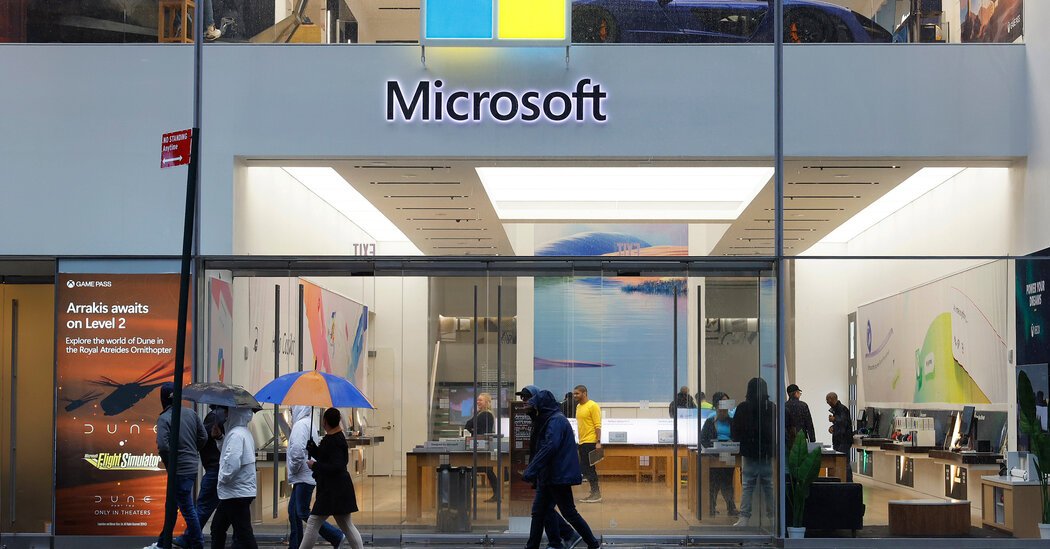Microsoft gave more signs on Thursday that its hefty investments in artificial intelligence were beginning to bear fruit, as it reported a 17 percent jump in revenue and a 20 percent increase in profit for the first three months of the year.
Revenue was $61.9 billion, up from $52.9 billion a year earlier. Profit hit $21.9 billion, up from $18.3 billion. The results beat Wall Street’s expectations.
A year after Microsoft began its push to put A.I. into everything it does, the company said sales of its flagship cloud computing product, Azure, had grown 31 percent. That included seven percentage points from its generative A.I. services, which are primarily selling access to technology developed by its partner, OpenAI.
In recent quarters, Microsoft’s A.I. push has helped it gain market share from Amazon, the leading cloud services provider. In January, the company said 53,000 customers were using its cloud A.I. services, with a third of them new to Azure.
Through its services, Microsoft is “orchestrating a new era of A.I. transformation, driving better business outcomes across every role and industry,” Satya Nadella, the chief executive, said in a statement.
This was the first full quarter when commercial customers could get a version of Microsoft’s productivity suite with A.I. tools, like transcribing virtual meetings in Teams or summarizing documents in Word. Though the company didn’t say how many A.I. subscriptions — which cost $30 a month — it had sold, commercial subscriptions grew 15 percent.
(The New York Times sued OpenAI and Microsoft in December, claiming copyright infringement of news content related to their A.I. systems.)
Microsoft has committed $13 billion to its partnership with OpenAI, the maker of the ChatGPT chatbot, and it has been building new data centers around the globe to meet what it anticipates will be more A.I. demand. The company spent $14 billion on capital expenses and leases in the first three months of the year, up from $11.5 billion in the previous quarter.
Gaming, Microsoft’s most important consumer product, grew 51 percent to $5.5 billion, with a big boost from its $69 billion acquisition of Activision Blizzard, the maker of Call of Duty and other blockbuster games, in October.



